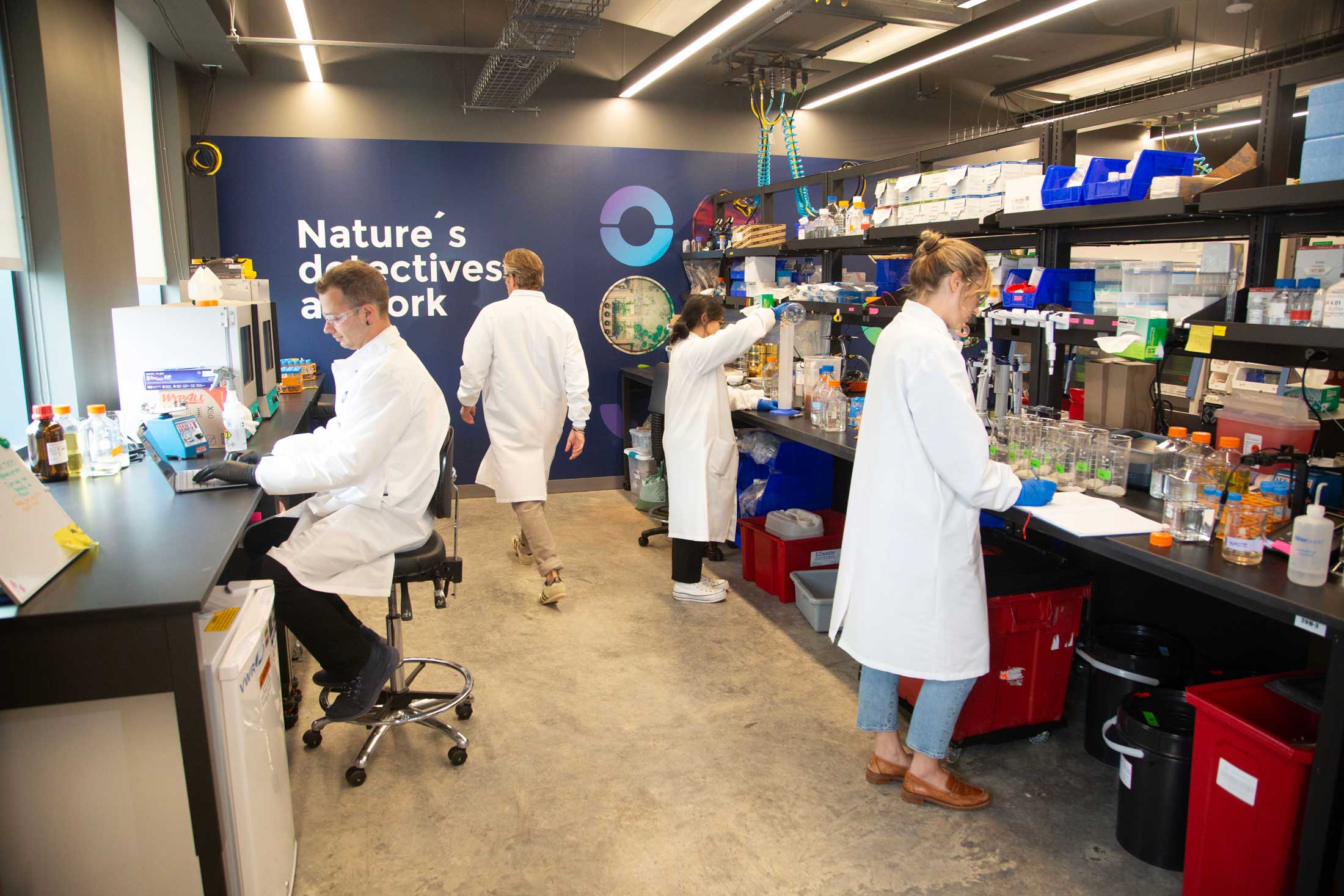Lung Cancer Takes Big Beating from Tiny Nano-Particles
Researchers develop nanoscale drug delivery for precision targeting of lung cancer cells
Nov 12, 2024
[DALL-E]
Lung cancer, specifically Non-Small Cell Lung Cancer (NSCLC)–the most common form of lung cancer among non-smokers–is a global health challenge, ranking as the second most diagnosed cancer and a leading cause of cancer-related deaths worldwide. Traditional small-molecule drugs struggle to keep up with the rapid onset of drug resistance caused by genetic mutations in cancer cells. This challenge underscores an urgent need for a customizable, safe, and effective anti-cancer therapy that can be designed, tested, and deployed swiftly.
A breakthrough from the National University of Singapore (NUS) led by Assistant Professor Minh Le of the Institute for Digital Medicine (WisDM) and NUS’s Department of Pharmacology offers a promising solution. Working with the Cancer Science Institute of Singapore (CSI Singapore), the Agency for Science, Technology, and Research (A*STAR), National Cancer Centre Singapore (NCCS), and Duke-NUS Medical School, Le's team has harnessed nano-sized particles released by cells, such as red blood cells, to serve as precision drug delivery platforms. These particles transport antisense oligonucleotide (ASO) molecules directly to cancer cells in the lungs, potentially halting cancer progression.
“Mutant Epidermal Growth Factor Receptors (EGFRs) are a major driver of lung cancer in the Asian population,” explained Assistant Professor Minh Le. “Our focus was on targeting these EGFR mutations, which contribute to cancer's resistance to standard drugs known as tyrosine kinase inhibitors (TKIs). By inhibiting the mutant EGFR, TKIs can slow cancer progression, but we sought a solution that would prevent the development of resistance.”
In their research published in eBioMedicine, the team focused on ASOs as a way to tackle drug resistance and facilitate personalized cancer treatment. Unlike traditional broad-spectrum therapies, ASOs work by adhering to specific sections of ribonucleic acid (RNA) to inhibit irregular activity, which can be easily adapted to target unique genetic mutations within cancer cells. While ASOs offer promising precision, they degrade quickly in the bloodstream, leading to diluted effects at tumor sites. To overcome this, the team devised a novel method of direct delivery using extracellular vesicles (EVs) derived from human red blood cells.
These EVs, primed with EGFR-targeting molecules, act as guided carriers, delivering ASOs specifically to the tumor site. The ASO-loaded EVs showed significant anti-cancer activity in various lung cancer models, including patient-derived cells, by targeting and inhibiting mutant EGFR while sparing normal cells. This innovative design also demonstrated efficacy against TKI-resistant cancer cells, an advance that holds promise for patients with limited treatment options.
“The use of extracellular vesicles as delivery vehicles for nucleic acid therapeutics introduces a powerful new modality in cancer treatment,” stated Associate Professor Tam Wai Leong, Deputy Executive Director of A*STAR Genome Institute of Singapore. “This precise targeting of mutant EGFR cells, while leaving healthy tissue intact, represents a step forward in tackling cancer drug resistance and advancing personalized medicine.”
Professor Goh Boon Cher, Deputy Director of CSI Singapore and a contributor to the study, emphasized, “This research is a proof of concept for targeting the vulnerabilities of tumor cells with therapeutic RNA, opening new doors for precision cancer treatments.”


















